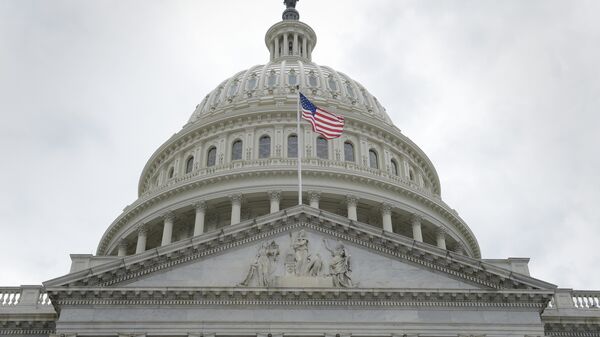If the US government fails to raise the “debt ceiling,” which limits how much the government is able to borrow, and subsequently misses a debt payment, its outstanding rating would not only be lowered by Moody’s Investor Service, it might stay downgraded for good, CNBC reports.
"An upgrade back to AAA," the gold standard in credit ratings, "would be unlikely while the institution of the debt ceiling, and the political environment that gave rise to the missed payment, remained in place," Moody’s team of analysts concluded in report published Tuesday.
The United States’ credit rating was downgraded previously in 2011 in response to a government shutdown triggered by a budget crisis, prompting Standard & Poor’s to downgrade the US federal government’s credit rating from AAA to AA+. The rating agency explained at the time that “the effectiveness, stability and predictability of American policy making and political institutions have weakened at a time of ongoing fiscal and economic challenges to a degree more than we envisioned.”
Given the fact that certain US legislators were willing to watch the US miss a debt payment even though it had an unquestionable ability to make the payment was a significant motivation for S&P to lower the government’s credit rating, Bloomberg reports.
As of 2013, S&P and Moody’s had captured 80 percent of global market share for ratings services while Fitch held 15 percent market share, according to a Council on Foreign Relations report.
The government has until September 29 to lift the debt ceiling, according to Treasury Secretary Steven Mnuchin.
“Economic history is littered with sovereign defaults, with hugely damaging results,” Michael Feroli, chief economist at JP Morgan, wrote in a report Tuesday. “However, those examples are invariably of countries that made the decision that continuing to meet their obligations was unbearably costly, not cases where the ability to pay was not in question but was held up by political maneuvering.”




